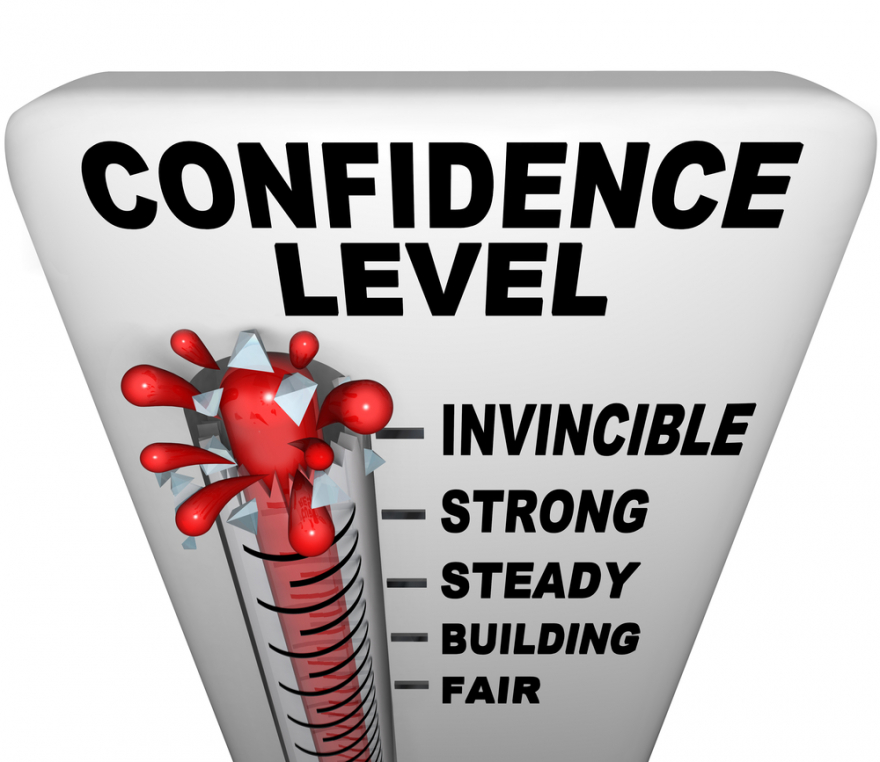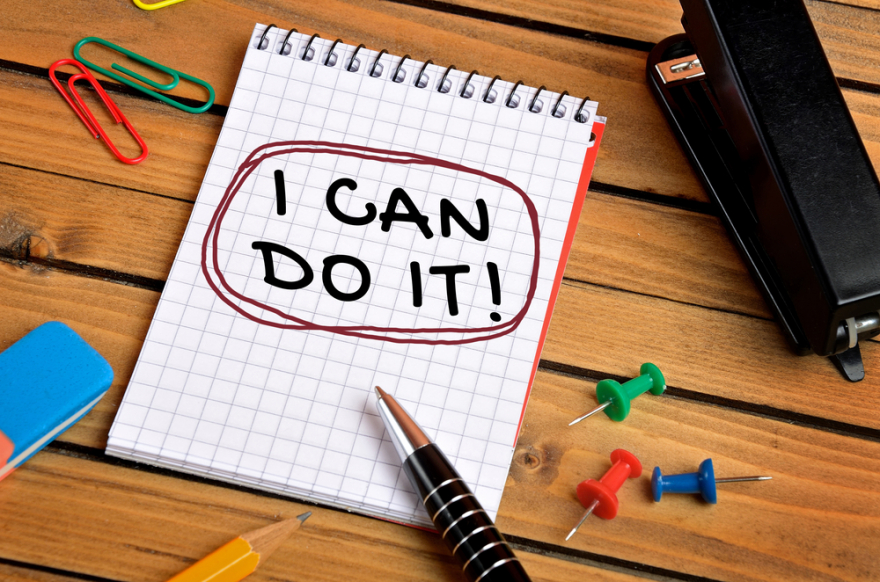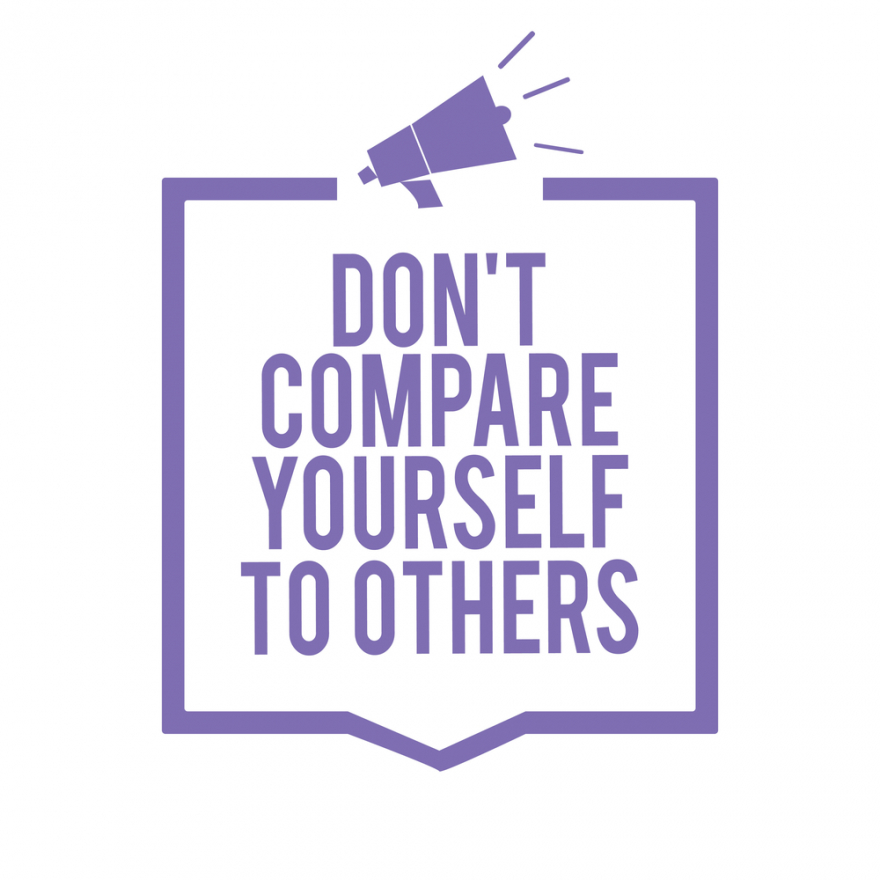|
How Self-Confident are You? Five Tips for Building Self-Confidence
Rev. Dr. Kitty Boitnott, NBCT, RScP
Heart-Centered Career Transition and Job Search Coach | Life Strategies Coach

Self-confidence may very well be the secret sauce of success in life. Think of the people who have inspired you? Were they shy, shrinking violets? Probably not. People who feel confident in their abilities are usually those who inspire us. Even if they don't always feel all that confident, they convey confidence that you admire. Perhaps you are also drawn to that person because you want to be more like them.
I have been lucky enough to have worked with a lot of people over the years who inspired me in one way or another. I have learned much from them by having them mentor me and teach me. I have gleaned from their wisdom and understanding that I would never have gathered on my own.
E. E. Cummings wrote: "Once we believe in ourselves, we can risk curiosity, wonder, spontaneous delight, or any experience that reveals the human spirit."
There is a whole body of research that supports the idea that successful people are self-confident. Morris Rosenberg and Nathaniel Branden are probably the most influential people in self-esteem research. Rosenberg argues that self-esteem is related to your belief in your self-worth. Branden, on the other hand, argues that self-esteem is composed of two distinct components. One element would be self-efficacy, and the other would be self-respect.
We all want to feel confident in our abilities.

Sometimes it is more difficult than others, though. We have all suffered at one time or another from "impostor syndrome." The impostor syndrome is that feeling that comes with feeling like we are presenting a front that isn't authentic. Sometimes it is required that we pretend we know what we are doing until we learn what we need to know. But you should never let your fear of not knowing enough about something keep you from learning. Be willing to stretch yourself out of your comfort zone.
So, how do you develop the self-confidence in yourself that you admire in others? Read on to find some recommendations:
1) Set Specific Goals for Yourself
Set specific goals and write them down. Make a list of both your long-term and short-term goals, and keep them visible around the house or in your office. Set up specific benchmarks that you can celebrate at small accomplishments while you work your way to your primary goals.
Let's say that you have the goal of writing a book, but you keep putting it off for all the many reasons that people use for procrastinating.
- Decide on the central theme of the book. What is it you want to say?
- Who will be your audience? What do you want them to gain from reading your book?
- Write an outline.
- Set up a writing schedule.
- Commit to writing for a certain amount of time or a certain number of words each day.
- Stick with it until you have completed the first draft.
- Then edit it.
- Find a professional editor who can help you polish it off.
- Make a decision about whether you want to self-publish or submit the manuscript to a publisher for publication.
Perhaps you don't care about writing a book, but you want to attract a new relationship in your life. Self-confidence is the key in that goal as well. When you go out to meet new people, be mindful of how you present yourself. More importantly, perhaps, pay attention to how you carry yourself. Do you stand up straight, or do you slump? Does your body language convey that you are shy and retiring? Or do you project an air of feeling comfortable in your skin?
The same goes for setting up business relationships or starting a new job. The more you can convey that you are self-confident, the more people will trust you and want to be around you.
2) Stop Comparing Yourself to Other People and Be Yourself

We all tend to care too much about what others think of us. I wrote about this recently. We tend to beat ourselves up when we think we don't measure up to some mental fantasy of what someone else's life is like. Stop doing that! For one thing, it only serves to make you unhappy. And for another, it doesn't move you forward.
It's okay to be inspired by others. I find Oprah to be immensely inspiring, for example. But I would never aspire to BE Oprah. And I would never compare my sense of self to hers. I have accomplishments and successes of my own. I don't need to covet her achievements and successes. or anyone else's. With that said, I CAN learn from her example and feel inspired by her authenticity and generosity.
Constantly comparing yourself to other people is harmful to your self-esteem. And it sabotages your efforts to develop the kind of self-confidence that you want.
3) Work on Creating a Positive Self-Image

Some people have so little confidence in themselves that they won't even try something new. When I was working on my National Board Certification, I would talk to my colleagues about it. I encouraged those I thought would be good candidates to also go for it. I was surprised by the number of people who refused to consider it. They had heard how hard it was. They knew people who had tried it and failed. They projected that happening to them. It was easier not to try.
I didn't achieve on my first try, and it was pretty upsetting, I admit. I had never failed at anything so important in my whole life. I remember telling my sister that I guessed it was time I suffer a failure. I was 50, after all. It felt like a good lesson even though it was painful. What she said to me, really helped. I remember her words exactly: "Kitty, you haven't failed at anything. You will be successful on the next round and remember you have tried something that only 2% of the teachers in the country have even attempted. Most people won't even try to earn it."
She was right. Not only did I achieve on the next try, but I felt it was a very good lesson in humility for me. That setback didn't slow me down, though. I started my Ph.D. the next year. And I achieved that in less than five years. (That was something I had also wanted to do but had been afraid to try before.)
4) Go Inside Yourself and Get to Know Who You Really Are
We could all use some quiet time. We need that time for thinking or writing in a journal. Take some time to assess your strengths, weaknesses. Ponder your unique personality. What are your personal character traits? What quirks do you have? What talents?
We don't learn about ourselves when things are going our way. We only really learn who we are at our core when we face an obstacle or a problem that seems insurmountable. Present yourself with some challenges to find out who you are at your core.
5) Turn off the Noise

Turn off the TV and put down the doggone phone. Spend more time with friends who help you feel good about yourself. Take a course that will help build your confidence in yourself. Discover a new talent. Go for a walk. Learn to meditate.
These are all ways that you can get in touch with yourself and who you are at your core.
And that is where self-confidence is born.
As you build your self-confidence, watch your life improve in unexpected ways. Maybe you will finally decide to lose that 10 pounds that crept onto your waistline the last few years. Perhaps you will decide to go for that promotion you have wanted. Whatever you choose to do, do it with a sense of adventure. Be more invested in the journey than the destination. That is a sign of real self-confidence.
Until next time.
P. S.
Have you had a chance to check out my new podcast, "Teachers in Transition?" This last week's episode was about finding clarity over confusion when you are considering a career change. Listen on iTunes at https://podcasts.apple.com/us/podcast/teachers-in-transition/id1460021639 or Stitcher at https://www.stitcher.com/podcast/kittzbcomastnet/teachers-in-transition.
Please listen, leave a review and subscribe so you can be alerted to new episodes as they come out. This week, I will be talking about the role of good nutrition in managing stress.

|